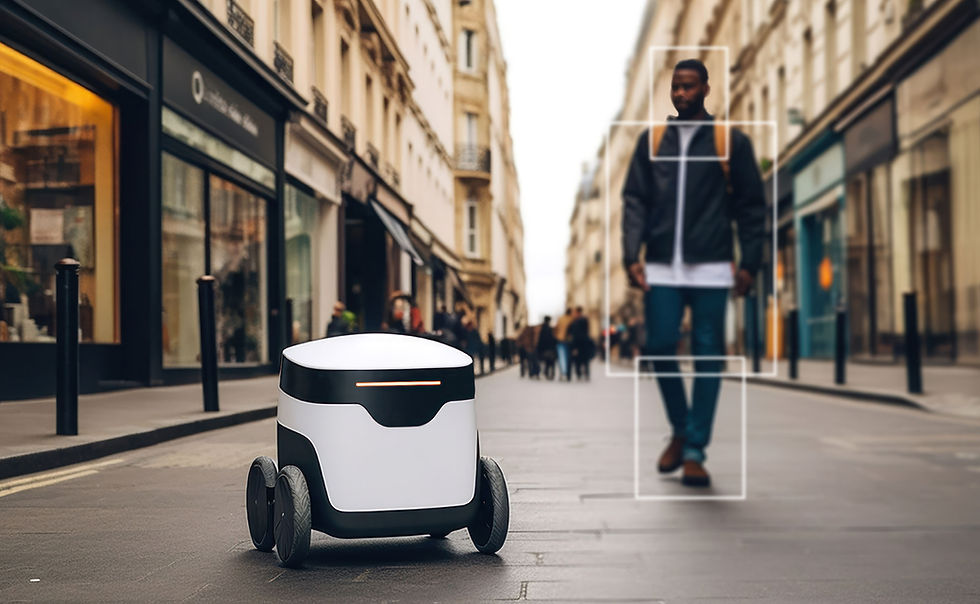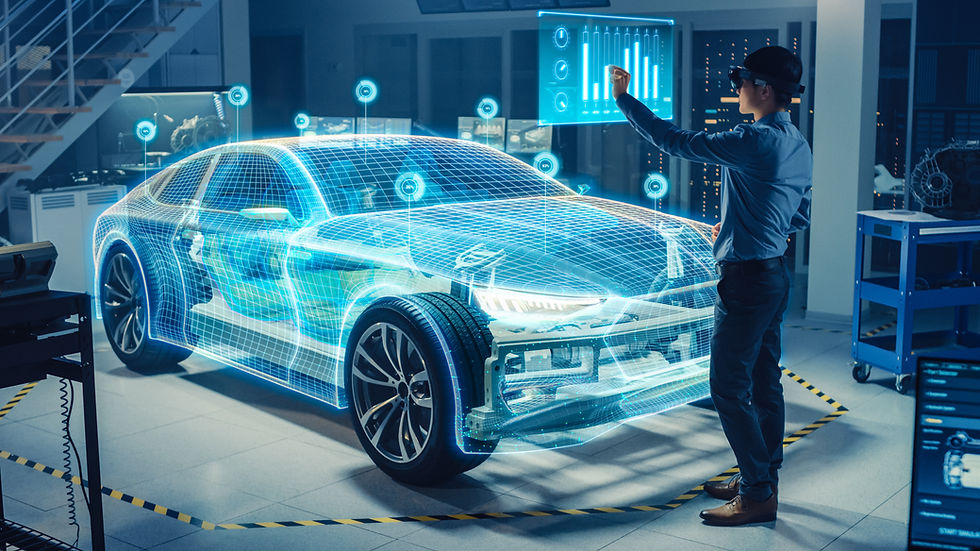Navigating Automotive Supply Chains: Generative AI's Influence on Supply Chain Management
- Aug 23, 2023
- 2 min read

In the intricate world of automobile manufacturing, a digital transformation is steering the course—Generative Artificial Intelligence (AI) is redefining the realm of supply chain management. This article delves into the heart of supply chain excellence, unveiling how the fusion of cutting-edge technology and logistical acumen is reshaping the way we forecast, procure, and distribute automotive components. From demand foresight to supplier collaboration, Generative AI is nurturing a future where every vehicle is a testament to seamless supply chain orchestration.
Introduction: Generative AI's Role in Supply Chain Transformation
Automotive supply chains are evolving into landscapes empowered by AI. As global market dynamics fluctuate and consumer preferences evolve, technology becomes the compass for supply chain agility. Generative AI collaborates with supply chain analysts, procurement specialists, and logistics experts, orchestrating a new era of precision and efficiency in the intricate network of automotive component flow.
Demand Forecasting and Inventory Management: Predicting Automotive Needs
Demand is projected with AI precision. Generative AI analyzes historical sales data, market trends, and economic indicators to generate accurate forecasts. These insights guide inventory levels, minimizing overstocking or shortages and ensuring optimized component availability.
Supplier Selection and Negotiation: Enriching Supplier Partnerships
Supplier relationships are fortified by AI insight. Generative AI evaluates supplier performance, quality metrics, and cost structures to recommend suitable partners. These data-driven insights empower informed negotiation and collaboration strategies.
Logistics and Distribution Optimization: Streamlining Component Flow
Logistics is orchestrated by AI acumen. Generative AI processes data on transportation routes, lead times, and distribution networks to optimize component flow. This coordination ensures that components reach assembly lines efficiently, reducing production delays.
Information Technology Solutions Provider's Role: Enhancing Supply Chain Evolution
Information technology solutions companies play a pivotal role in this evolution. They integrate Generative AI into supply chain management systems, enhancing data visibility, analysis, and collaboration. This partnership ensures that AI is seamlessly woven into the fabric of supply chain operations, facilitating a harmonious and data-driven transformation.
Supplier Collaboration: Strengthening Relationships
Generative AI enriches supplier collaboration. By analyzing historical collaboration data and performance metrics, AI fosters supplier partnerships. These insights drive joint innovation and problem-solving, enhancing mutual success.
Risk Management: Mitigating Uncertainties
Generative AI navigates uncertainties. By analyzing geopolitical trends, market volatility, and production risks, AI-generated insights enable proactive risk management strategies. This preparation cushions supply chain disruptions.
Sustainability Integration: Driving Eco-Conscious Practices
Generative AI champions sustainability. By analyzing supply chain data and carbon emissions, AI suggests practices that reduce environmental impacts. This integration ensures that automotive supply chains align with eco-conscious goals.
Challenges and Ethical Considerations: Guiding AI's Influence
As Generative AI transforms supply chain management, challenges surface. Balancing AI-generated insights with human judgment, addressing concerns of data security, and ensuring that AI serves as an augmentation rather than a replacement for supply chain expertise are pivotal.
Conclusion: Pioneering Supply Chain Excellence
Generative AI's impact on supply chain management is akin to orchestrating a symphony of efficiency. As demand forecasting, supplier collaboration, logistics optimization, and sustainability integration converge, they nurture a future where automotive supply chains surpass limitations, yielding vehicles that reflect precision, agility, and innovation.




Comments